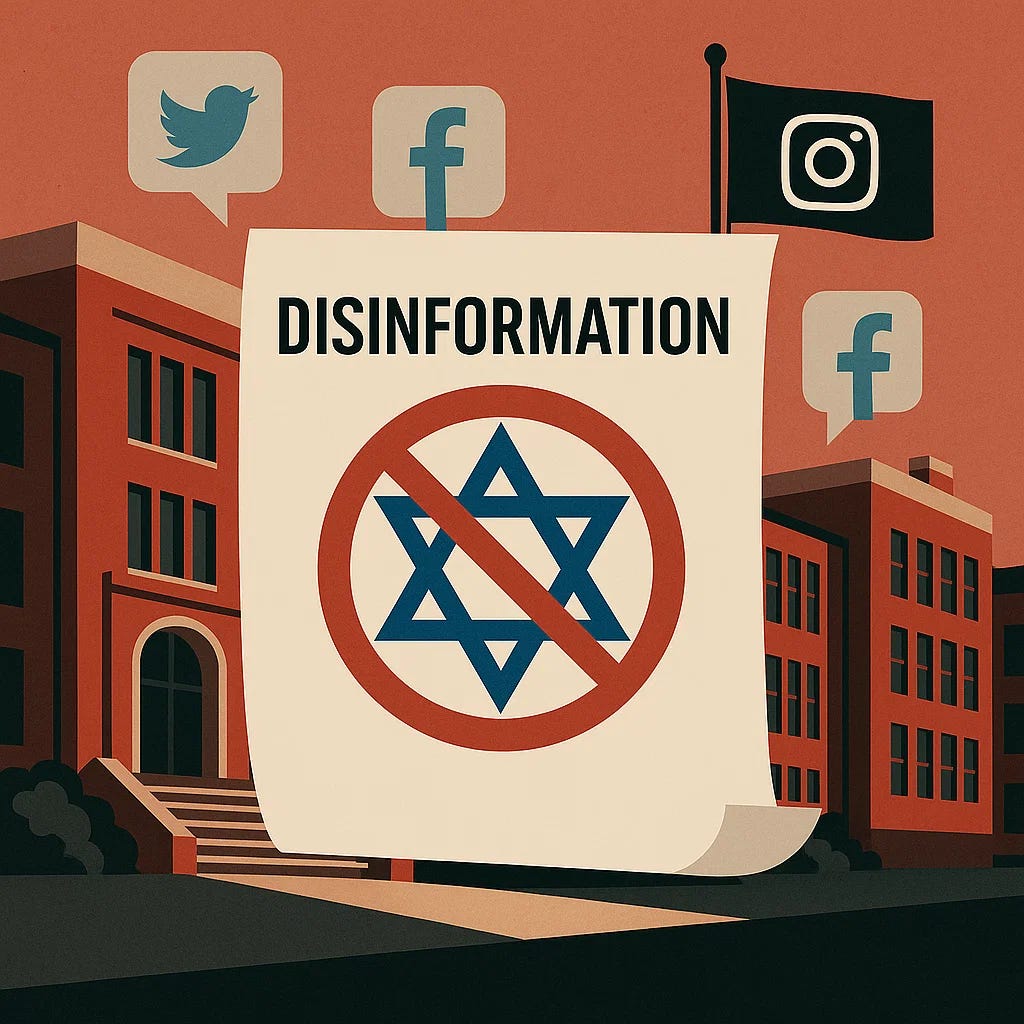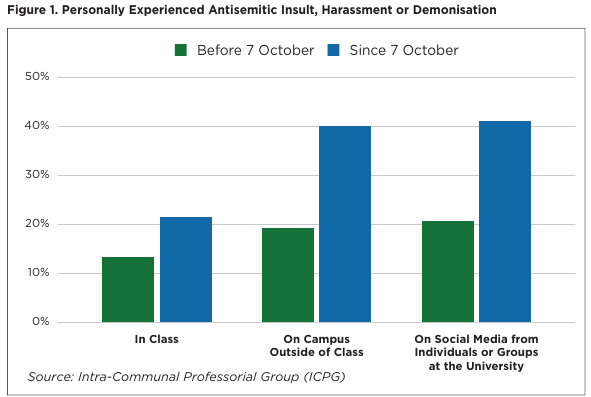The Rise of Antisemitic Disinformation on UK Campuses: a Henry Jackson Society Report
A Henry Jackson Society report by Dr. Helena Ivanov highlights the rise of antisemitism on UK campuses since October 7, driven by disinformation, and urges immediate action from universities
Antisemitism on university campuses in the UK is sharply rising, driven largely by the spread of antisemitic disinformation. According to a new report from the Henry Jackson Society, written by Dr. Helena Ivanov, incidents doubled between 2022 and 2024, with Jewish students reporting feeling unsafe and silenced. The report asserts that universities have largely failed to respond effectively, allowing a toxic environment where antisemitic rhetoric spreads in lectures, social media, and even among some faculty. It calls for compulsory disinformation literacy training, clearer disciplinary measures, and ongoing policy reviews to protect Jewish students and promote a fact-based campus dialog
The Numbers and Experiences
According to a previous report by the Henry Jackson Society, following the October 7, 2023 Hamas attack, antisemitic incidents surged globally, including a 361% increase in the U.S. and similarly alarming rises in the UK and Europe. This report highlights that according to the Community Security Trust (CST) on UK campuses alone, antisemitic incidents increased by 117% from 2022 to 2024, with 272 cases reported in the 2023/24 academic year—the highest ever recorded. Jewish students describe hostile environments marked by harassment, violence, and vandalism, with many forced to conceal their identity or avoid certain classes. The report highlights that the National Union of Students was found to have inadequately addressed antisemitism for over a decade, illustrating institutional neglect.
Disinformation as The Hidden Driver
The report identifies antisemitic disinformation as a core cause behind the surge in antisemitism on campuses. According to the report, surveys across three UK universities showed that 88%, 84%, and 72% of students respectively reported a sharp increase in antisemitic disinformation following October 7. The report asserts that more than 70% of students believed this disinformation influenced their peers’ views on the Israel–Hamas war. Importantly, the report highlights that the spread of falsehoods is not limited to social media, with classrooms also identified as spaces where antisemitic disinformation is propagated.
The report further reveals a serious media literacy gap, as over half of the surveyed students struggled to distinguish fact from fiction. Workshops demonstrated many students feel ill-equipped to recognize or counter disinformation, often feeling helpless when confronting false narratives among peers. According to the report, students overwhelmingly support mandatory training for both students and staff to address this issue, but universities currently fall short in providing effective education or intervention.
Universities’ Response
The Henry Jackson Society report urges universities to introduce compulsory disinformation literacy courses for students and staff. It recommends that these courses be practical, interactive, and led by experts in media, technology, and disinformation. The report asserts that clearer, transparent disciplinary procedures are needed to hold accountable those who deliberately spread false information that creates a hostile environment, while safeguarding free speech and academic debate. It also calls for establishing mechanisms for ongoing review and adaptation of disinformation policies based on regular community feedback. The report reaffirms the importance of Holocaust education as a key element in combating antisemitism.
Policy Recommendations
The Henry Jackson Society report urges universities to introduce compulsory disinformation literacy courses for students and staff. It recommends that these courses be practical, interactive, and led by experts in media, technology, and disinformation. The report asserts that clearer, transparent disciplinary procedures are needed to hold accountable those who deliberately spread false information that creates a hostile environment, while safeguarding free speech and academic debate. It also calls for establishing mechanisms for ongoing review and adaptation of disinformation policies based on regular community feedback. The report reaffirms the importance of Holocaust education as a key element in combating antisemitism.
The report concludes that the rise of antisemitic disinformation on UK campuses is a worsening crisis threatening the safety and well-being of Jewish students. It asserts that universities must move beyond rhetoric and implement concrete measures to equip their communities with the tools to identify and challenge falsehoods. Failure to act risks deepening hostility and undermining the core values of academic freedom and inclusivity. The Henry Jackson Society report outlines a clear path for universities to create safer, more fact-based campus environments where open and respectful dialogue can thrive.




